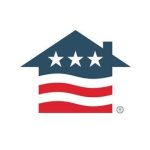It’s pretty easy to get caught up in a home’s features when you’re house hunting. Many times, a homebuyer is told to consider the additional costs of utilities and maintenance some features require, but extra safety and inspection concerns are often neglected.
Here are a few instances where a little more consideration is helpful:
Fireplaces
People know to use caution with fire, but a fireplace comes with more responsibility than avoiding flames.
- Inspections: Get a fireplace inspection before you purchase or as soon as you move in. Yearly inspections are recommended. Examine fireplace and chimney structures for any flaws or hazardous blockage like birds' nests. Inspection costs can run anywhere from $50 to $130.
- Chimney Sweeps: On top of inspections, yearly chimney sweeps are recommended and run about $50-$75. Traditional fireplaces as well as gas need cleaning due to debris and exhaust.
- Carbon Monoxide: Burning gas or wood in your fireplace emits poisonous carbon monoxide, which with improper ventilation can be deadly. Invest in carbon monoxide detectors for around $30, but be sure to position them properly. Detectors shouldn’t be placed within 15 feet of your fireplace or near humid areas such as a bathroom. Since gas rises, position the detector near the ceiling.
- Ventilation: Proper ventilation is a major fireplace safety concern. It’s important for carbon monoxide but also water vapor and sparks. With gas fireplaces in particular, the water vapor can collect and form fungus and mold infestations, causing sickness. Also, sparks will naturally burn upward as long as there is a clean path to the oxygen above.
Garage
A garage can be very appealing whether it’s for car protection or extra storage.
- Security: Thieves can have easy access to valuables in your garage, especially if it has windows or a separate door entrance. If your garage doesn’t have windows, thieves sometimes break into cars to get a garage door opener. Rather than keep an opener in your car, consider investing $20-$50 in a keypad.
- Children/Pets: Garage doors provide opportunities for kids and pets to get trapped or pinched by doors. Extra surveillance is required and you may want to explain to children potential dangers.
- Collapse: If you live in an area prone to strong winds, you run the risk of your garage collapsing due to pressure. Large double-doors are more vulnerable than singles, but you can reinforce the fastenings of both to reduce risk. Typically homeowners insurance covers tornado damage, but it may be worth checking before you purchase.
Decks
Decks can definitely add an aesthetic appeal to a home, but can also present some dangers.
- Fastenings: Most deck collapses are a result of nails used for attachment to the home. Nails can bear weight, but the outward pressure caused by being attached to a home is too much. Bolts distribute the pressure through washers, which makes them a safer choice. You can also reinforce your deck with hidden fasteners that don’t weaken from rust.
- Wear and Tear: Decks can collapse from poor construction, old age and poor maintenance. Areas with heavy snowfall are especially vulnerable to weakening structures due to moisture and weight. To prevent these risks, yearly inspections are a good idea, and you can even do them yourself.
Related Posts
-
 What Is The VA Seller Concession Rule?When buying a home with a VA loan, one potential way to save money is by negotiating seller concessions. Seller concessions are financial incentives or contributions from the seller that help reduce the buyer's out-of-pocket expenses. The Department of Veterans Affairs (VA) allows these concessions to cover up to 4% of the loan amount, but they must be items outside of standard closing costs.
What Is The VA Seller Concession Rule?When buying a home with a VA loan, one potential way to save money is by negotiating seller concessions. Seller concessions are financial incentives or contributions from the seller that help reduce the buyer's out-of-pocket expenses. The Department of Veterans Affairs (VA) allows these concessions to cover up to 4% of the loan amount, but they must be items outside of standard closing costs. -
 How Discount Mortgage Points Work on a VA LoanPurchasing discount points on a VA loan can be a good investment for Veterans looking to lower their interest rate.
How Discount Mortgage Points Work on a VA LoanPurchasing discount points on a VA loan can be a good investment for Veterans looking to lower their interest rate.
